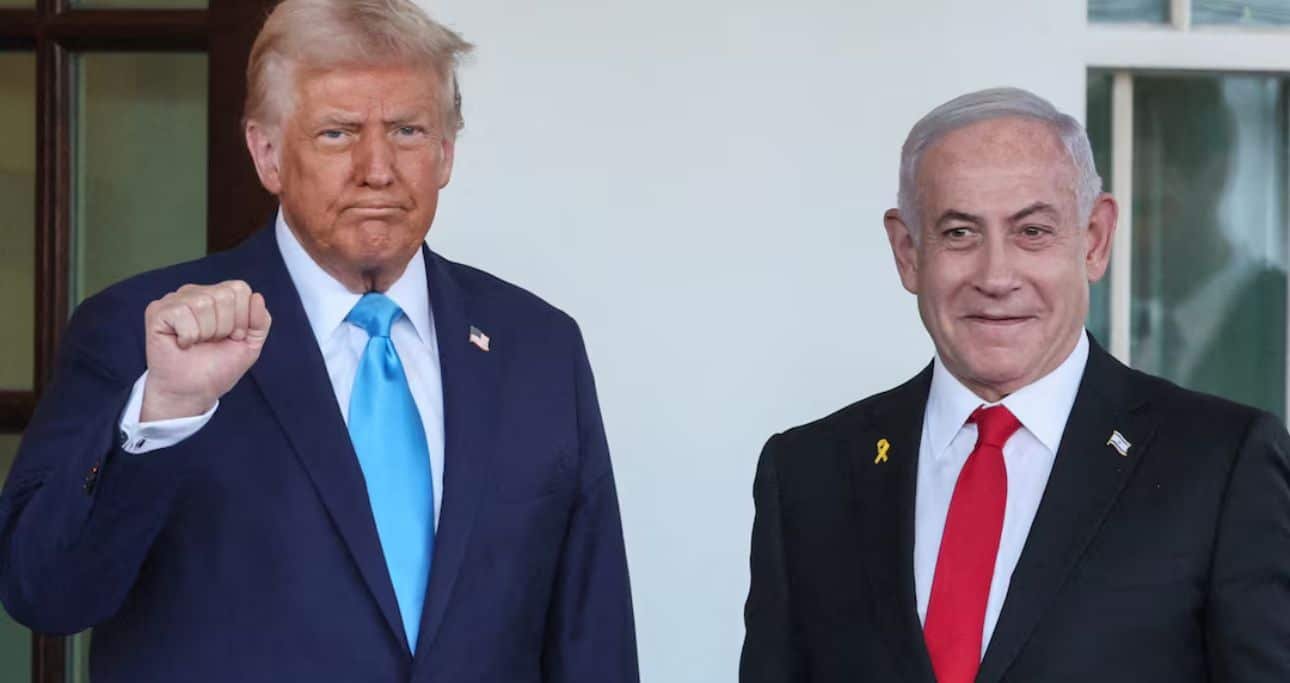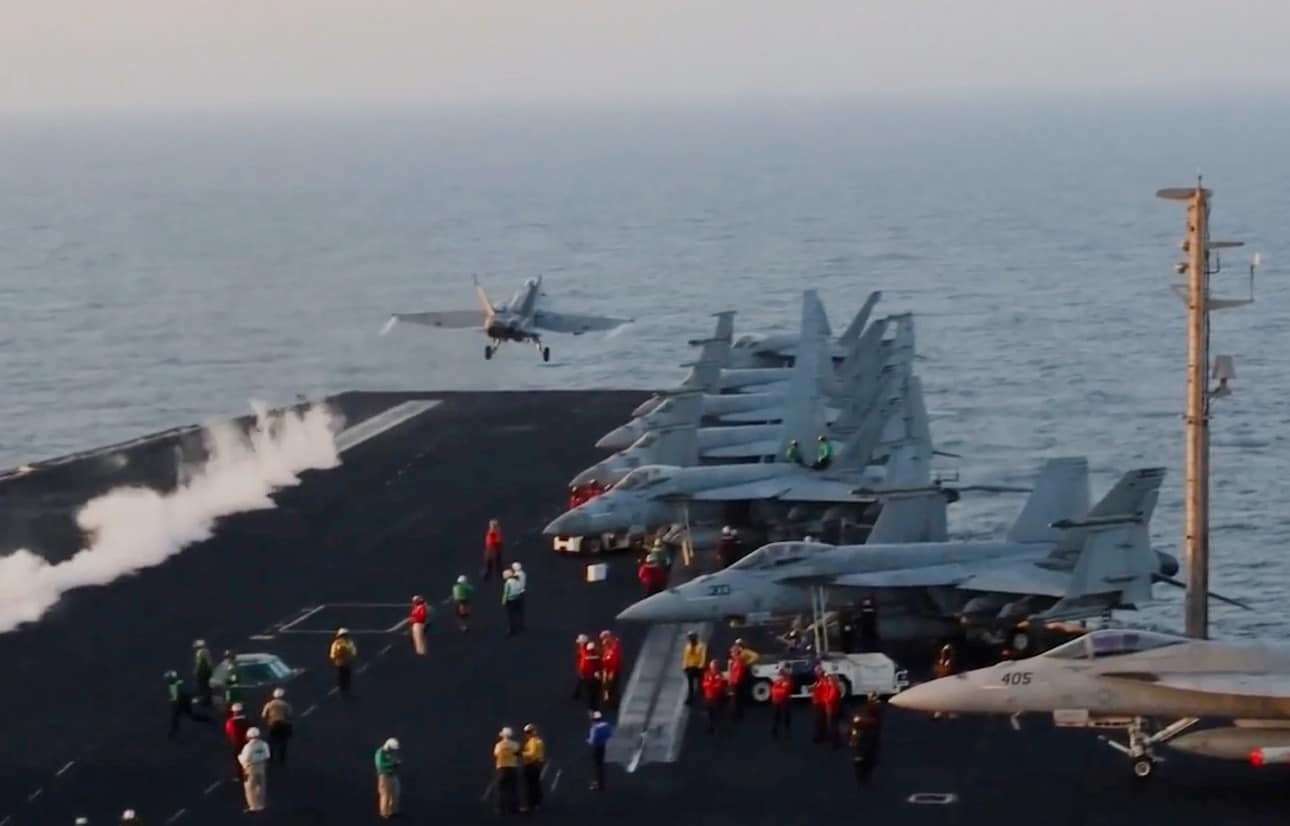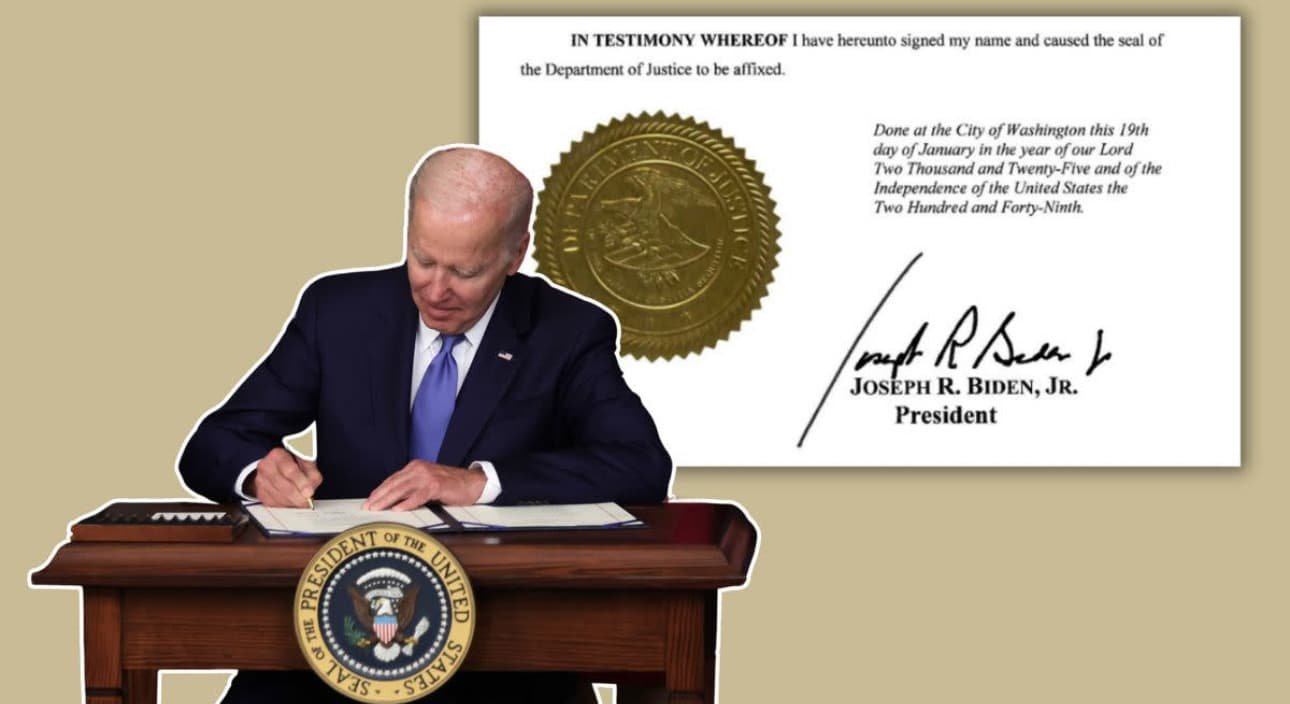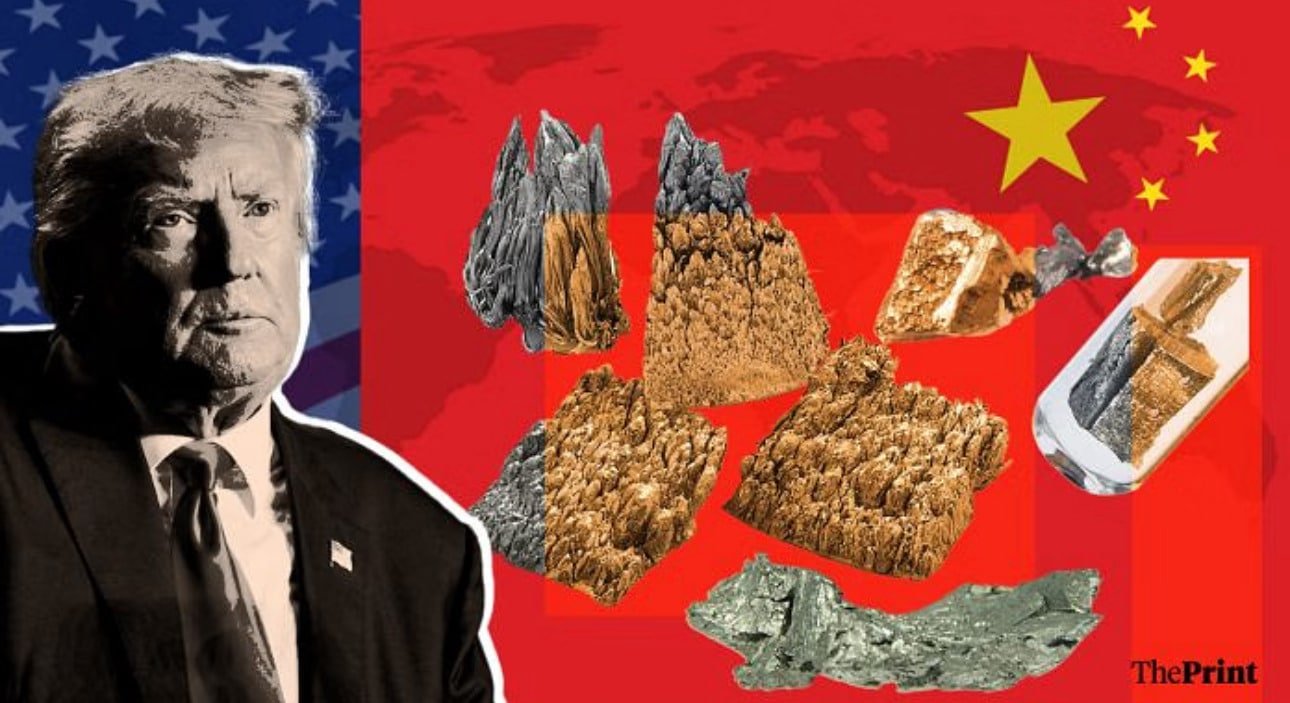BREAKING: Netanyahu Visits Trump to Discuss Iran
Israeli Prime Minister Benjamin Netanyahu made a sudden trip to Washington to discuss Iran’s nuclear program during his White House visit with many concerns on his agenda. President Donald Trump’s tariffs. Turkey’s expanding power presence in Syrian territory. And the 18-month war in Gaza.
The White House visit ended with Netanyahu walking away with little to show for his efforts contrasting sharply with his earlier visit which resulted in great success. In their one-hour Oval Office meeting Trump managed to counteract or challenge every policy point Netanyahu brought up.
During Tuesday’s statement Netanyahu deemed his meeting a success and described the visit as “very good” while asserting achievements across all policy areas. According to an anonymous source familiar with the situation who spoke under anonymity regulations the Israeli delegation privately considered the meeting challenging.
Overview of Netanyahu’s Visit
Netanyahu visits Trump to discuss Iran, Gaza, and tariffs. This meeting is urgent and critical for both nations. It aims to tackle many pressing issues.
The focus is on Israel’s security and economy. Leaders want to work together against Iran’s harmful actions. They also aim to find solutions for the Gaza conflict and discuss U.S. tariffs.
Context and Purpose of the Meeting
This meeting is key to strengthening the U.S.-Israel alliance. They will talk about Iran’s nuclear plans and its actions in the region. They also want to improve peace efforts in Gaza.
Key Issues on the Agenda
- Iran’s influence: Exploring strategies to counteract Iran’s aggressive posturing in the Middle East.
- Gaza conflict: Discussing humanitarian concerns and possible solutions in the region.
- Tariff impacts: Analyzing how U.S. tariffs could affect Israel’s economy and trade relations.
- Defense collaboration: Focusing on joint military efforts to enhance security against threats.
This visit is a big effort to strengthen US-Israel ties. It tackles many challenges and could shape future cooperation in security, trade, and peace.
Netanyahu Visits Trump to Talk About Iran, Gaza and Tariffs
Prime Minister Netanyahu and President Trump had important talks. They discussed Iran’s role in the Middle East. Iran’s actions in Syria and support for militant groups worry Israel a lot.
Israel needs a strong plan to fight Iran. This is key for peace in the region.
Iran’s Role in Regional Stability
Netanyahu stressed the need to stop Iran’s growing power. Talks with Iran have been tough. Iran’s actions in Syria and Gaza are big concerns.
Standing strong against Iran is important. It helps keep Israel safe and promotes peace.
Impact of Tariffs on Economic Relations
Tariffs were another big topic. The Trump administration’s tariffs worry Israel and the U.S. Their economic ties are strong. Tariffs could make working together harder.
This shows a bigger conversation. It’s about protecting American interests and U.S.-Israel relations.
| Issue | Details |
|---|---|
| Iran’s Influence | Support for groups in Syria and Gaza, threatening regional stability |
| Economic Relations | Concerns over tariffs affecting U.S.-Israel trade |
| Negotiation Strategies | Need for a unified approach to counter Iran |
Responses from International Stakeholders
The world has reacted quickly to Netanyahu’s visit. They are worried about Iran and the U.S.-Israel alliance. Many are concerned about Gaza and the rising tensions.
They all agree that we need a diplomatic solution. This is the only way to bring peace.
Global Reactions to U.S.-Israel Relations
Leaders worldwide are worried about the U.S. and Israel getting closer. They are alarmed by the military actions in Gaza. They want restraint and a team effort in international relations.
Many countries want the U.S. to rethink its support. They believe in talking things out instead of fighting.
Responses from Palestinian Authorities
The Palestinian authorities are calling for action. They oppose the actions in Gaza. They say it’s causing a lot of suffering.
They want the fighting to stop right now. They believe this is a critical moment for peace talks. The world is watching as power shifts and peace efforts are tested.
Historical Context of U.S.-Israel Relations
The history of U.S.-Israel relations is deep and complex. It started with strategic alliances made over many years. These alliances have grown through many meetings and agreements, focusing on military and economic ties.
These early steps have shaped today’s policies in international relations.
Previous Meetings and Agreements
Throughout history, key meetings and agreements have strengthened ties between the U.S. and Israel. Some important events include:
- The Camp David Accords in 1978, which helped start peace talks between Israel and Egypt.
- The Oslo Accords in the early 1990s, aimed at peace talks between Israel and the Palestinian Authority.
- More recently, the Abraham Accords in 2020, which led to normalization agreements between Israel and several Arab nations.
These moments show a strong commitment to shared interests in a dangerous region.
The Evolution of Policy Towards Iran
Changes in U.S. policy towards Iran have had big effects on U.S.-Israel relations. Each president has changed their approach based on new threats and political news. The shift has moved from trying to talk to Iran to a more confrontational stance.
The current administration is focusing on sanctions and military strength to limit Iran’s power in the Middle East. This change shows the complex nature of international relations and how U.S.-Israel relations are connected to these changes.
| Time Period | U.S. Policy towards Iran | Impact on U.S.-Israel Relations |
|---|---|---|
| 1979-2000 | Policy of containment, focus on diplomacy | Stable relations, partnerships in intelligence sharing |
| 2001-2008 | Heightened tensions post-9/11, military focus | Strengthened military cooperation, increased aid |
| 2009-2016 | Diplomatic outreach with Iran (JCPOA) | Strain in relations, Israel critical of US engagement |
| 2017-Present | Aggressive sanctions, increased military posture | Solidified alignment, joint operations against threats |
Understanding this evolution is key to understanding the complex dynamics of U.S.-Israel relations. It also helps us see the broader effects on regional stability and peace efforts.
Implications for Middle East Peace Efforts
Recent talks between leaders have big implications for peace in the Middle East. They touch on more than just two countries’ relations. The talks are affected by growing tensions and violence in Gaza.
This violence makes it harder to find common ground. It shows the need for strong international support to solve these problems.
Challenges Facing Negotiations
Finding peace is hard because of many obstacles. Military actions and political divisions in Palestinian areas make it tough. Different groups have different views, making it hard to agree on anything.
Iran’s role also adds to the complexity. Its influence affects the local situation, making things even harder.
The Current State of Affairs in Gaza
Gaza is a key area of tension. It faces serious humanitarian issues that affect people’s lives every day. The situation is so bad that it calls for immediate action to solve it.
Effective leadership and planning are essential. Without them, the chance for peace keeps getting smaller. News about the area’s instability shows how urgent the situation is.
Conclusion
Netanyahu’s visit to Trump shows how complex international relations are. Issues like Iran’s goals, tariffs’ effects, and Gaza’s conflict are key. These talks highlight the importance of U.S.-Israel ties in keeping the region stable.
Security, economic ties, and humanitarian issues link Israel and the U.S. closely. They must work together to overcome challenges in the Middle East. The talks between Netanyahu and Trump will shape their future relationship.
We see the need for peace and cooperation in these talks. Finding balance means understanding and acting together. The path forward is through dialogue and partnership, aiming for a safe and prosperous future for both nations.
FAQ
What were the main topics discussed during Netanyahu’s visit to Trump?
The main topics included Iran’s aggressive posture in the region, the ongoing conflict in Gaza, and the impact of U.S. tariffs on economic relations.
Why is Iran’s role significant in this meeting?
Iran’s influence in Syria and support for militant groups is seen as a destabilizing factor. It’s critical for Israel’s security and regional stability.
How are tariffs affecting the relationship between the U.S. and Israel?
The tariffs imposed by the Trump administration have raised concerns. They threaten the strong financial ties between the two nations.
What was the international community’s response to the visit?
Responses were varied. Many global leaders expressed concern over the U.S.-Israel collaboration. They called for diplomatic solutions to the conflict.
What historical context is important for understanding this meeting?
The U.S. and Israel have a long-standing strategic alliance. They have numerous agreements solidifying military and economic partnerships. This is important, given changing U.S. policies towards Iran.
What are the challenges facing peace efforts in the Middle East?
Persistent violence in Gaza and strong opposition from Palestinian groups pose significant challenges. These issues complicate negotiations and efforts for a diplomatic resolution.
How does this meeting impact future U.S.-Israel relations?
The discussions are likely to shape the trajectory of U.S.-Israel relations. They will influence how both nations address regional stability and their interactions within the international community.














